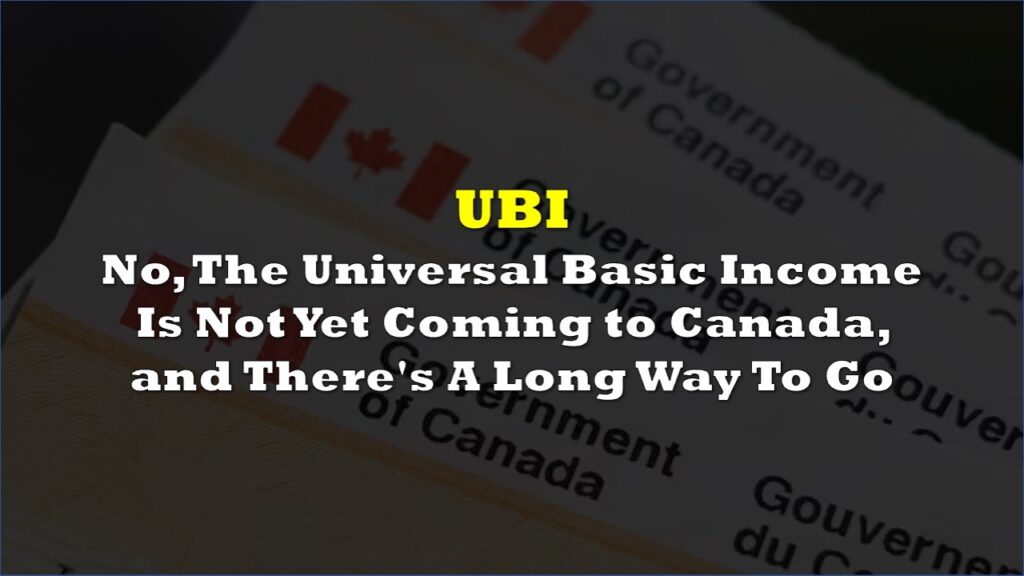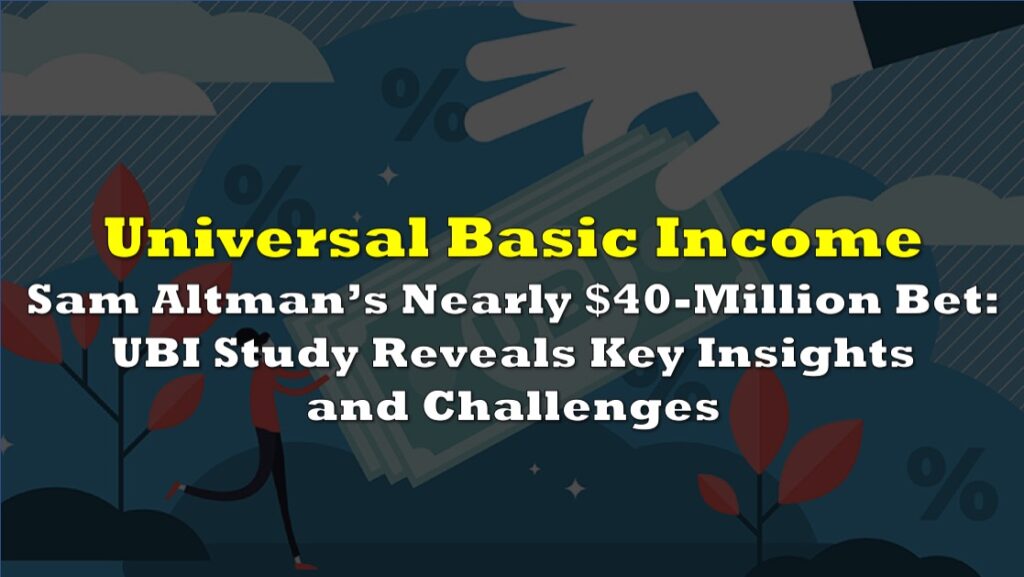Canada is embarking on the initial stages of a significant journey towards the establishment of a comprehensive basic income program aimed at combating poverty on a national scale. The Senate’s national finance committee commenced its examination of Sen. Kim Pate’s proposal for a universal basic income framework on October 17.
This pursuit of a basic income program traces its roots back to as early as the 1970s in Canada. The impetus for such a program has gained significant traction, particularly during and after the COVID-19 pandemic, when the Canada Emergency Response Benefit (CERB) provided substantial financial assistance, distributing $2,000 per month to millions of Canadians. This substantial relief effort raised questions about the feasibility of a permanent income program.
At its core, Universal Basic Income (UBI) is precisely as it sounds—a government-issued payment accessible to all citizens, irrespective of their income level or need. However, in contemporary discussions, UBI has evolved beyond its literal interpretation. As noted by Michael Mendelson, a fellow associated with the Maytree think tank, UBI now encompasses a spectrum of basic income plans, ranging from universal coverage to a “guaranteed” income that adjusts based on an individual’s requirements.
The Senate’s proposal advocates for a guaranteed “livable basic income” accessible to every Canadian aged 17 and older, including temporary workers, permanent residents, and refugee claimants. Importantly, this proposed basic income framework is designed to complement, not replace or diminish, existing health or disability benefits.
Canada's UBI proposal includes handing out money to everyone over the age of 17 including non-Canadian citizens; temporary workers, permanent residents and refugee claimants.
— Kirk Lubimov (@KirkLubimov) October 22, 2023
'Free money' to all + mass immigration.
The annual mass immigration's cost of UBI will add $3B+ per… pic.twitter.com/VxffkCZjqC
In April 2021, the Parliamentary Budget Officer, Yves Giroux, estimated that a guaranteed basic income program providing nearly $17,000 annually for low-income households could effectively halve poverty rates. However, the cost to the federal government is projected to be a substantial $85 billion.
Earlier in July 2020, Giroux’s research of such a program said it could cost anywhere between $47.5 billion to $98.1 billion for a six-month duration. That would translate to an average benefit between $4,500 and $4,800 for qualifying Canadians aged 18 to 64.
Opponents of UBI argue that it might disincentivize some people from participating in the workforce. If individuals receive a basic income without any work requirements, there is a concern that some may choose not to seek employment, particularly for low-paying or part-time jobs. This could lead to a reduction in the labor force and potentially hamper economic productivity.
Critics also highlight the potential for UBI to be regressive, where high-income individuals receive the same benefit as those with lower incomes. This could lead to a redistribution of wealth that is less equitable and targeted than alternative social assistance programs that provide more substantial support to those in greater need.
If this passes in the House of Commons and the Senate, it will be proof that we're lead by absolute idiots. Any form of Universal Basic Income (UBI) will decrease labour participation, slow productivity further, attract millions of unwanted immigrants and bankrupt Canada in less… https://t.co/cN0Aw05Hwy
— Martyupnorth®- Unacceptable Fact Checker 🇨🇦 🍎 (@Martyupnorth_2) October 22, 2023
While Canada has not officially implemented a national basic income program, various provincial governments have conducted experiments involving unconditional cash transfers to their citizens. Notably, from 1974 to 1979, the province of Manitoba ran a guaranteed basic income experiment across the region, with particular attention paid to the town of Dauphin. Under the “Mincome” project, every household received a minimum income, with the government providing the full benefit if no one in the household was employed, and a reduced rate for households with some earnings.
Nearly 30% of the town qualified for “mincome,” and a 2018 study revealed a decrease in hospitalizations, particularly for mental health issues, and extended school attendance among teenagers during the Dauphin experiment.
“The data collected during the Mincome experiment also showed that Dauphin had lower rates of domestic violence, work‐related injuries, farm and motor vehicle accidents, and mental illnesses than in surrounding areas. This illustrates both that poverty has wide‐reaching consequences and that Mincome had positive outcomes for the whole community,” the report said.
In 2017, Ontario, under the leadership of Premier Kathleen Wynne, initiated a basic income pilot in Hamilton, Thunder Bay, and Lindsay. The project aimed to assist 4,000 low-income individuals in the target region, providing up to $17,000 annually over three years. However, the pilot program was terminated when Premier Doug Ford assumed office following a landslide election in 2018.
Quebec, as of the beginning of 2023, launched its own basic income program. The province will allocate a base amount of $1,211 per month to Quebec residents with “severely limited capacity for employment,” and beneficiaries can earn up to $14,532 annually without seeing their benefits reduced.
Reflecting on the experience of CERB and these various basic income pilot programs, it becomes evident that Canada possesses the necessary “administrative capacity” to implement a basic income program. However, Mendelson highlights that simply replicating CERB is not the solution. The crux of the debate surrounding basic income programs lies in determining the most sustainable and effective approach to alleviate poverty for those who require it most.
We could give every Canadian $4000 a month in UBI and wipe out the national debt if we nationalized oil in Canada.
— BullishBearz (@BullishBearz) October 22, 2023
The article says it will likely be scaled based upon need. Would love to know how need is determined. This sounds a lot like welfare as opposed to UBI. Both of which I have issues with.
— Trapper John McEwen (@JohnMcEwen21) October 22, 2023
They were “considering” this in a pre-inflation world. It’s a great idea when there is no inflation
— TheGoldPrairie (@TheGoldPrairie) October 22, 2023
In an hyperinflationary world this is not the way out and will make it much worse
Information for this briefing was found via Toronto Star and the sources mentioned. The author has no securities or affiliations related to this organization. Not a recommendation to buy or sell. Always do additional research and consult a professional before purchasing a security. The author holds no licenses.








